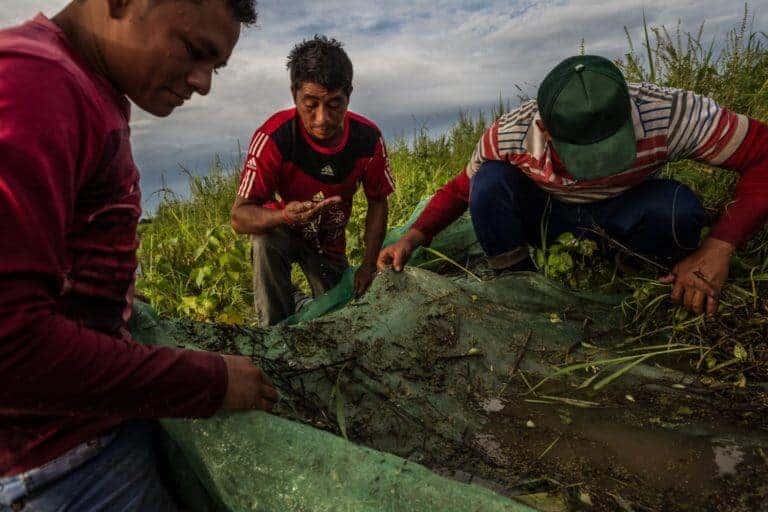World Wildlife Fund (WWF) and the University of Maryland Center for Environmental Science (UMCES), along with local partners, released the Colombian Orinoco River Basin Report Card — the first of its kind in of South America — to track progress against global water management goals. With a B- for the Orinoco river basin, the report card serves as a model for building comprehensive, community-driven, scientifically credible basin assessments that can work anywhere in the world.
“Around the world, people don’t know enough about the state of their freshwater ecosystems. Even if there is scientific data about the basins, it’s rarely in a format that policymakers, advocates or community members can easily understand and use,” said Simon Costanzo, a science integrator at UMCES. “Report cards like the Orinoco’s condense relevant data into a grade reminiscent of what stakeholders receive in schools. Suddenly the status of the basin is clearer, and informed decisions can be made on how to minimize negative impacts.”
Analyses like the basin report card are designed to act as a timestamped snapshot of ecosystem and related changes, which happen slowly over a long period of time. An initial basin report card gives policy makers, conservationists and all water users a baseline by which to measure progress or decline in basin health, while subsequent reports can identify slow-moving but critical threats and provide feedback of what solutions are improving basin health. This is especially important as countries develop and try to balance growth with maintaining natural resources.
“We decided to pilot report cards under the WWF-UMCES basin report card initiative in Colombia because the nation is growing, and with the recent peace agreement after more than half-century of conflict, is poised for even more rapid development. The Orinoco itself is incredibly biodiverse and critical to the country’s growth, yet vulnerable to unsustainable development,” said Karin Krchnak, director of WWF’s freshwater program. “But at the end of the day, the Orinoco is a river system experiencing the same issues as rivers all over the world: industrialization, extractive industries, and industrial scale agriculture. As a result, no matter where in the world you are located, this model applies to your river. Best of all, our process ensures the broadest range of stakeholders are bought into working collectively for a better future for the basin.”
In the case of the Orinoco report card, WWF and UMCES convened 149 local individuals representing 71 organizations throughout the Colombian portion of the Orinoco river basin. Through a series of workshops, the stakeholders determined the most important values and threats to their basin, and then assigned indicators based on data that could be used to score those values. For example, river dolphins are a treasured species in Colombian culture, and they are an indicator species, meaning their health status is linked with the overall health status of the basins in which they live. Other indicators can be further explored online at https://www.worldwildlife.org/pages/orinoco-river-basin-report-card or http://ecoreportcard.org/report-cards/orinoco-river/.
In its entirety, the report card shows a basin in transition, facing real and immediate threats from land use change, loss of forest cover, and ecosystem transformation. The results emphasize the need for integrated land use planning to ensure development occurs in a sustainable way.
Despite the proven potential of report cards, they have not yet been widely adopted. With recent technological advances and heightened global attention on water (through the Sustainable Development Goals and World Economic Forum, as examples), the time is right to increase uptake. Unfortunately, there is no easily accessible process that empowers local stakeholders to create their own report cards, nor any standardized approach that development institutions can confidently support. UMCES and WWF are changing that by refining and open-sourcing a basin report card development process that is simple to implement in places with limited resources — where such tools and measurements are often most needed.
“The Orinoco score card is a really innovative tool,” said Luis Germán Naranjo, WWF’s conservation director in Colombia. “It is the conclusion of a participative process and helps everyone better understand some of the pressures facing a region many people see as Colombia’s new frontier, especially after the recent peace agreement. With the report card, those living and working in the Orinoco basin have a crucial tool to measure and weigh the opportunities and the limits of the ecosystem.”


